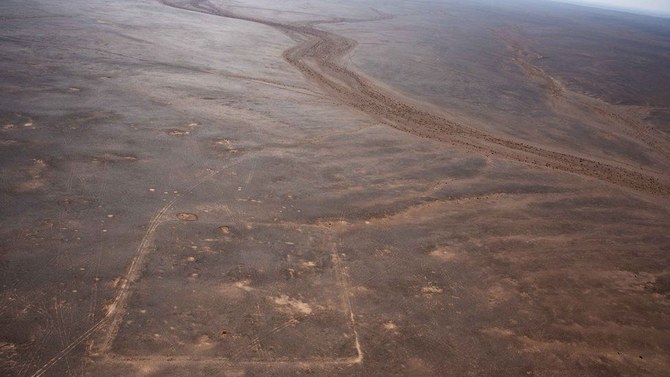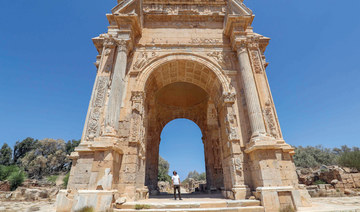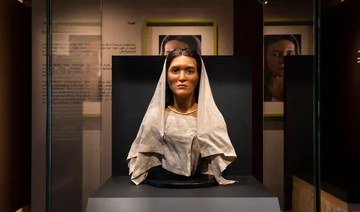LONDON: Three 2,000-year-old Roman military camps have been discovered through Google Earth buried in the Arabian desert.
The camps, found by researchers at Oxford University, may have been constructed as part of the Roman Empire’s takeover of the ancient Nabataean Kingdom, the territory of which stretched between the modern kingdoms of Jordan and Saudi Arabia, in A.D. 106 following the death of its last king, Rabbel II Soter.
Roman sources say the conquest was a peaceful transfer of power, but the new discoveries suggest it may have been more violent than previously believed.
With distances between them ranging from 23 to 27 miles, the camps would almost certainly have been used as temporary accommodation as troops, most likely mounted, made their way across the desert, used for only a few days before the Romans marched on.
Researchers also think that another camp may have been built further west near Bayir, in modern Jordan.
“We are almost certain they were built by the Roman army, given the typical playing card shape of the enclosures with opposing entrances along each side,” said Dr. Michael Fradley.
“The only notable difference between them is that the westernmost camp is significantly larger than the two camps to the east.”
He added: “The level of preservation of the camps is really remarkable, particularly as they may have only been used for a matter of days or weeks.
“They (the Romans) went along a peripheral caravan route linking Bayir and Dumat Al-Jandal (in Saudi Arabia). This suggests a strategy to bypass the more used route down the Wadi Sirhan, adding an element of surprise to the attack.
“It is amazing that we can see this moment in time played out at a landscape scale.”
Roman military expert Dr. Mike Bishop said: “These camps are a spectacular new find and an important new insight into Roman campaigning in Arabia.
“Roman forts and fortresses show how Rome held a province, but temporary camps reveal how they acquired it in the first place.”
Prof. Andrew Wilson, who co-wrote the report on the three camps in the journal Antiquity, said the greater size of the western camp raised questions about the nature of Rome’s conquest of Nabataea.
“These marching camps — if we are correct in dating them to the early second century — suggest the Roman annexation of the Nabataean Kingdom following the death of the last king, Rabbel II Soter in A.D. 106, was not an entirely straightforward affair, and that Rome moved quickly to secure the kingdom.
“Why does the western camp have twice the capacity of the other two? Did the force split, and if so, where did the other half go? Was it half wiped out in a battle, or did they remain in the western camp to resupply the other camps with water?”


















